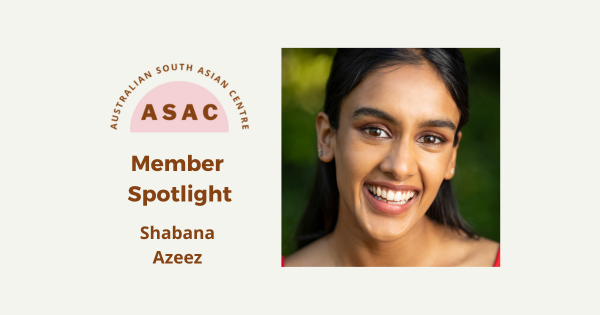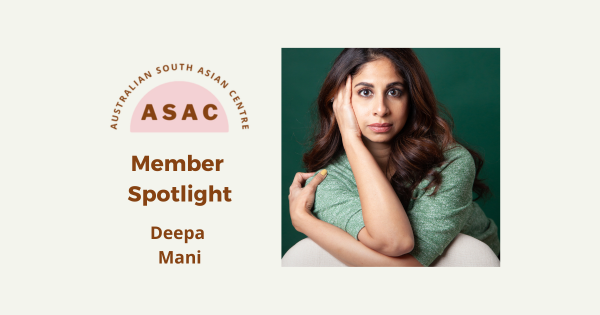Meet Sheetal Deo: Lawyer, Founder and Advocate
According to Sheetal Deo, Principal Solicitor and Founder of the innovative low-bono law firm, Shakti Legal Solutions, she didn’t start law school with a burning desire to create social change. Like many children of migrants, she felt the driving need to achieve financial security; which is understandable given many first-generation migrant parents struggled financially and usually only achieve the stability they desired at great personal cost and sacrifice.
“Growing up, as a person of colour in Canada and being a first generation Canadian to migrant parents who worked very hard, I didn’t take money for granted.”
“I’m sure there’s some intergenerational trauma hinged to wanting to have a lot of power, wealth and status when I grew older, but that was my motivating factor to be a lawyer.”
Much has changed since then and Sheetal credits the seeds planted during her undergraduate degree around identity and intersectionality for laying the foundations for her ongoing commitment to social impact.
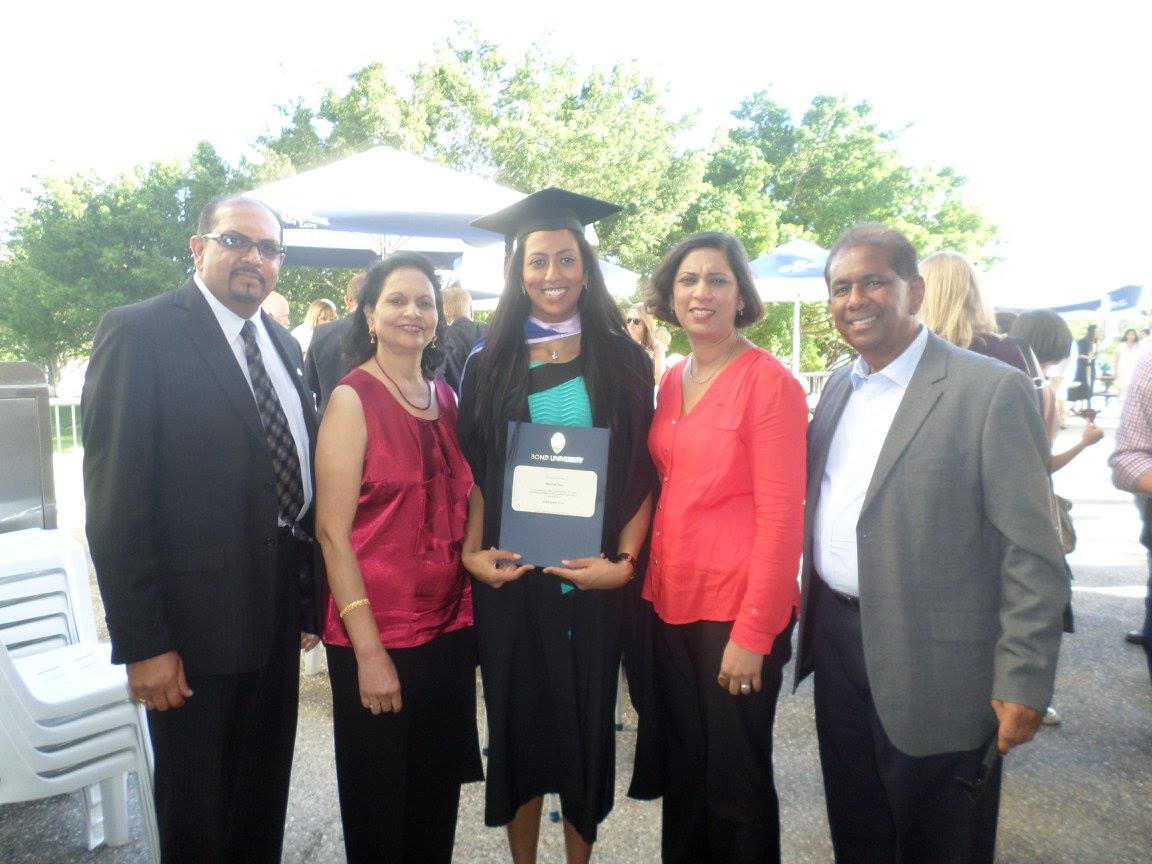
Since her time in law school, Sheetal founded a law firm designed to improve access to legal services for everyday people with a unique, ‘pay what you can’ model. In addition to her work in legal practice, Sheetal is an Adjunct Lecturer with the College of Law, runs the diversity and inclusion social enterprise, The Diversity Collective, and volunteers her time with various not-for-profit organisations and boards including, Out for Australia, Queensland Law Society Council, and LGBTI Legal Service.
This month she was recognised as one of the winners of the Australian South Asian Centre’s 2022 Stellar Women series, for exemplary emerging and established South Asian creatives, activists, founders and leaders whose voices and work are a force for good.
In her interview with the ASAC’s Co-founder, Daizy Maan Kaur, Sheetal shared about the many hats she wears (lawyer, founder, advocate, and educator), her experiences as a first-generation Fijian-Indian Canadian now living in Queensland and being part of the Rainbow community, and her passion for bridging gaps in awareness, education, and accessibility.
Restructuring Systems and Building Bridges
“Connecting and bridging gaps is my jam,” Sheetal shared and it’s clear to see that looking at her history of creating solutions for social problems from her law firm, Shakti Legal Solutions, her diversity and inclusion social enterprise, The Diversity Collective, to the non-profit membership group for the culturally and linguistically diverse (CALD) LGBTQIA+ community and its allies, turned social meet-up group, Ethnic+, that she co-founded.
Sheetal candidly expressed that even she finds her bio a bit overwhelming at times, though she explained, “There are a lot of hats, but it’s not to glamourise how that looks. It’s intentional and it all flows.”
“Shakti came to be because I was sitting with my law degree and all of my privilege and not doing anything with it, and saw the huge disparity in the access to justice conversation.”
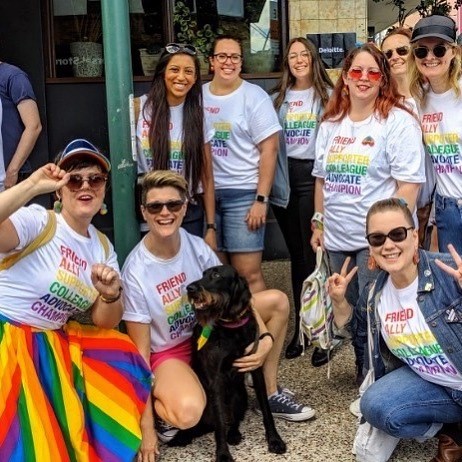
Sheetal described one morning that highlighted the depth of this disparity while she was working at the Queensland Law Society, the state’s peak body for lawyers, in their professional development team.
“I had a meeting that morning with a PhD student who had started this wonderful program called, ‘Go to Court.’ The purpose of that program was to provide GoCards to people from rural Aboriginal communities because people didn’t have the $10 deposit needed to put on to the GoCard to then be able to go to court. And then you miss your court date, bail and other issues would ensue.”
She then described another conversation she had an hour later with a colleague who had just secured a member discount at a suit store (standard work attire for lawyers) and shared the cheapest suit in-store was $10,000.
That stark contrast between the $10 GoCards and the $10,000 suit, gave Sheetal pause and motivated her to create a solution that addressed the community’s needs at a price point they could afford, having also come to the realisation she was getting burnout out in private practice and billing clients at rates her own family couldn’t afford.
“And that was it for me. That sparked me to start my own firm and start doing things differently.”
“When I was working with that demographic of people (marginalised, underrepresented communities) at Shakti and speaking to my colleagues within the legal profession about it, I saw the disconnect around social identity, privilege, oppression and intersectionality and I thought, ‘Gosh, there’s really a gap in education here. Where do we learn about that?’”
“I was tired of sitting through unconscious bias trainings that failed to examine the systems and structures that informed those biases. We weren’t having those conversations or even acknowledging how we, as lawyers, played into those systems and structures.”
“We as lawyers have such capacity to impact change, but we don’t talk about our own identities and our own space; the space that we take up, the space that we can take up and the changes that we can affect.”
“That’s how the Diversity Collective (TDC) came about. It was my attempt to bridge the gap in who’s talking about diversity and inclusion. I’m passionate about this space because I’ve lived as a racialised person, and as a person from different demographics etc.”
Reflecting on her childhood in Canada, Sheetal recognised how her Fijian-Indian heritage has influenced the work she does today.
“Like most people, I gravitated to people ‘like me.’”
“In the early days of school, when we hadn’t had the chance to learn much about others, that meant deferring to students/kids who looked like me.”
“Most of them were from India or Pakistan, this meant sometimes I had difficulty speaking or understanding their particular dialect (Urdu, Punjabi, or ‘shud’ Hindi) because Fijian-Indians speak ‘Fiji baat,’ – an amalgamation of languages representative of the diaspora of indentured labourers who were brought to Fiji from India in the 19th Century.”
Through these formative experiences, Sheetal learned firsthand how identity influenced the way individuals move through the world.
“Despite knowing English, I was put into an ‘English as a Second Language (ESL)’ class with some of these students because it was assumed (merely by association), that I couldn’t speak English either.”
As a result of these real and imagined language barriers, Sheetal found herself in this in-between space where she was excluded both by ‘Indians’ as well as those who were fluent in English. She draws parallels from this experience and this sense of societal disconnection to her experience in the Rainbow community.
“Similarly, when reflecting on my identity within the LGBTIQA+ community, I was faced with other labels, ‘Am I this, or am I that?’”
“These narratives left me feeling like I didn’t belong – I wasn’t Indian enough, not white enough either. Not gay enough, but not straight enough either.”
“They also ignore the complexity and intersecting identities of an individual. I didn’t have control over things that left me feeling excluded as much as some of the other things that made me feel included.”
“This is the complexity of systems of privilege and oppression demonstrates the importance of intersectionality. I may not have realised it at the time, but those feelings of privilege, guilt, oppression, erasure, and not belonging motivated a lot of what I do today—and how I do it.”
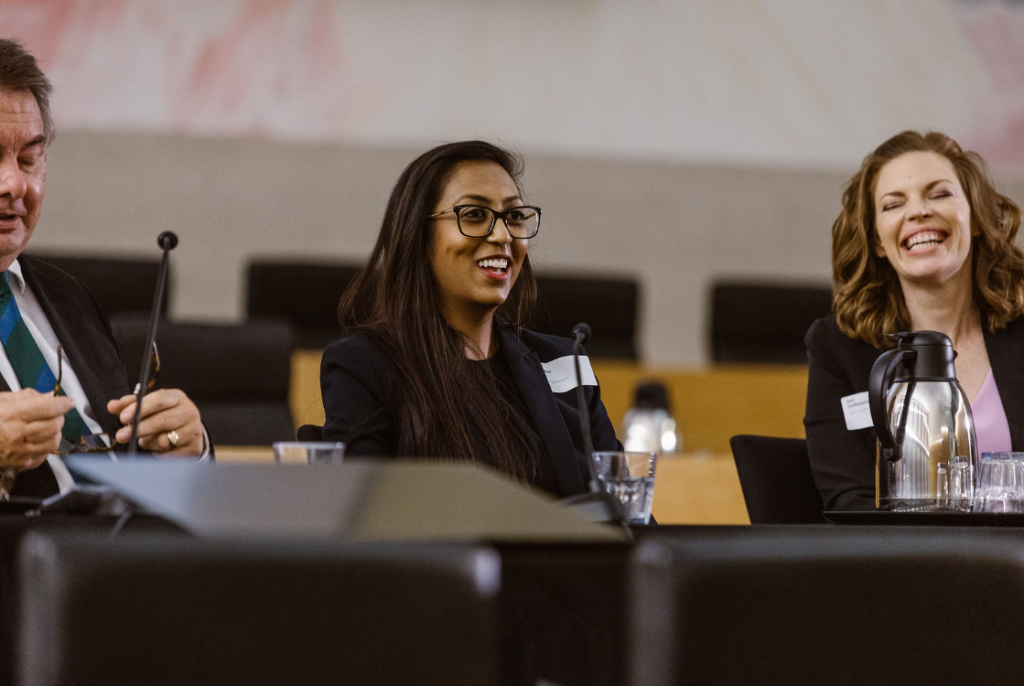
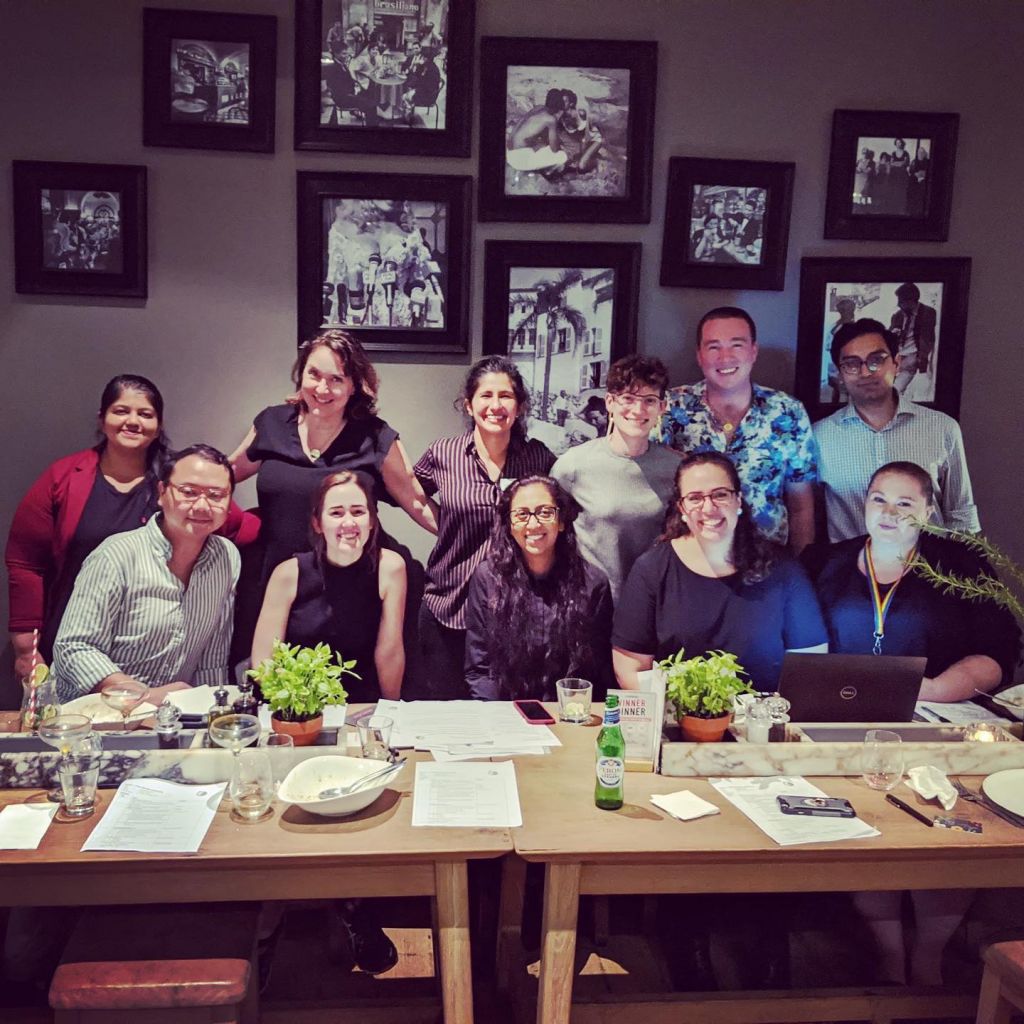
Ethnic+ was started when Sheetal and her co-founder, Mikhara Ramsing, identified there was a need for a safe space for the CALD Rainbow community to connect and learn from each other. This initiative has since grown and morphed into a social, meet-up group, shifting with the needs and resources of its circumstances. Sheetal shared that the reframing of Ethnic+’s vision wasn’t a failure, they just found a new solution to meet the identified gaps.
“Learning from the reframing or ‘failure’ of Ethnic+, the purpose was to do something and it may not have been in the way we did it initially, but it’s the way we’re doing it now.”
“There’s someone managing social events for queer South Asian people now. There’s a group of us, we call ourselves the jalebis because we’re not straight. We have our hangouts, we have that collegiality and community.”
This organisational pivot, led Sheetal to engage with new opportunities as the National Community Engagement Director and the Queensland State Director for Out for Australia, leveraging her role/s with existing organisations to deliver solutions to fulfil current needs within the community and utilising her experience in professional career development.
Sheetal’s advice for sustainable social impact
Sheetal’s advice for those in the early stages of their career, lawyers and non-lawyers, who want to make a difference, emphasises the importance of finding internal clarity:
Number 1: “Identify what your purpose is, what are you really trying to achieve?” Sheetal encourages those interested in creating social impact and/or legal education to take the time to find out their core motivations and write them down to stay on track.
“Once you identify what the core driving force is, there’s the cliche saying, be stubborn in your goal, but flexible in your approach.”
“It really is, even with Shakti and TDC, about trying to take up space in places where you haven’t seen anyone like yourself is inherently difficult at times. For me, it’s really about checking in on why I’m doing it and making sure I’m doing it for the right reasons. That’s always at the forefront. “
Number 2: Gain practical/work experience: “Spend as much time as you can really leaning into any experiences or opportunities to talk to anyone who’s already doing the work that you want to do, to better understand what that looks like, in real-time would be really helpful,” she advised.
For those interested in law, she said, “Have a really hard look at why you want to be a lawyer.”
“The last thing you want to do is to spend that amount of time, interest, energy, money, pursuing that career and then realise two, three years later this isn’t what you want to do.”
Number 3: Hard work: “One last piece of advice, I’m sure you’ve heard this before, but it is still hard work. It’s a lot of time and there are a lot of sacrifices involved.”
“For the past two years, while I’ve been doing what I’ve been doing, I had no social life. My social life is my friend and colleague Jae, who nominated me for this award. Thank you Jae for the nomination!”
“It really comes at a cost, and I suppose it speaks to the systems and structures and issues at play. It also comes back to asking yourself the question: ‘why am I doing this?’ and acknowledging that it’s bigger than you, but without you, it can’t happen.”
“At the end of the day, these are all great initiatives and social impact is good, but you have to take care of number one because if you don’t, you can’t do this work in the long run.”
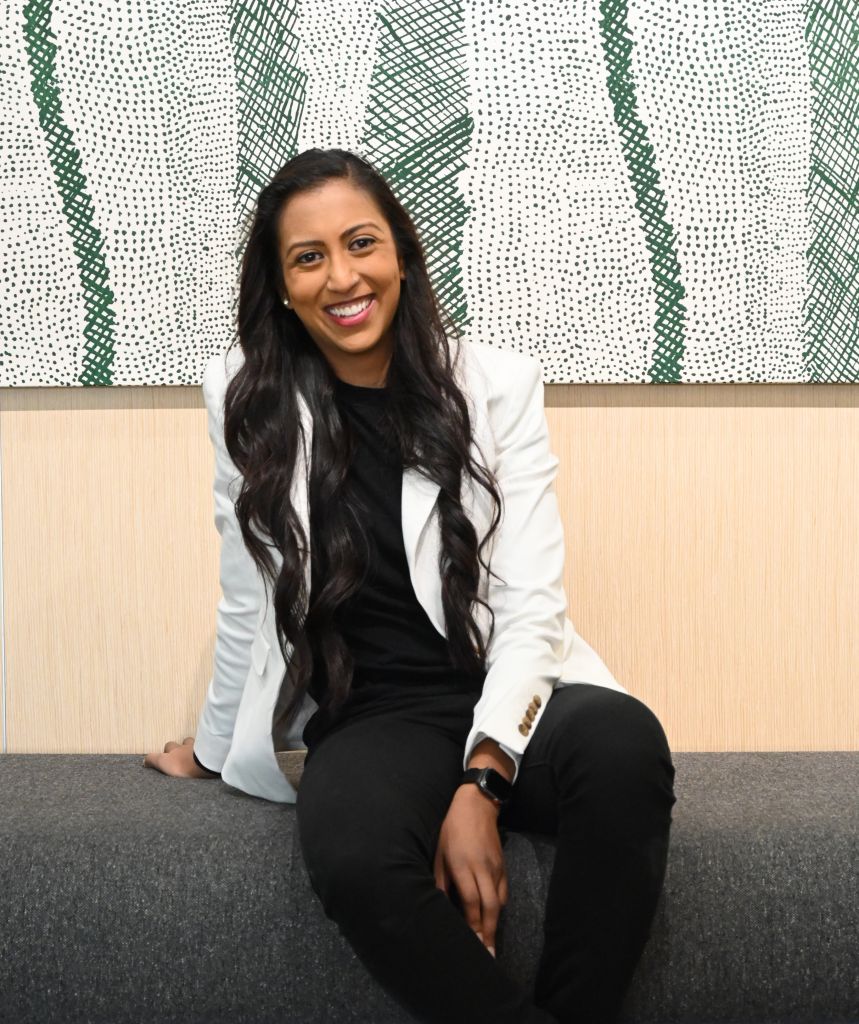
Rising Tides
There’s a saying that goes, ‘A rising tide lifts all ships,’ and it aptly characterises Sheetal’s experience with the South Asian women who inspire her and have guided her journey.
When we asked Sheetal who her role models and mentors were she gave us this list.
“Four women come to mind.”
“First, my mother. If not for her sacrifices, I wouldn’t have the opportunities or privileges I have today. Including sacrificing the pursuit of higher studies to marry my dad, a stranger to her then, because that’s what her family needed her to do.”
“Second, Dr Rita Dhamoon, my undergraduate professor and mentor. She not only sowed the seeds of my political and social science studies but fostered their growth as well as mine.”
“Third and fourth are Dr Satwinder Bains and Dr Sharanjit Sandhra.”
“These two women are the heart and soul of the South Asian Studies Institute (Canada), formerly known as the Centre of Indo-Canadian Studies. The Centre provided access to platforms and opportunities which would otherwise have been inaccessible to me on my own.”
“These four women, of many, have played a pivotal role in forming the person I am today.
* * *
To keep up to date with Sheetal’s journey follow her on Linked In, Instagram via @SheetalDeo, or on her website, www.sheetaldeo.com
ASAC is humbled to have Sheetal as one of the four 2022 Australia’s Stellar South Asian Women recipients. We’re in awe of her dedication to improving legal services for marginalised and underrepresented communities and the admirable work she does to raise awareness and provide education across her many platforms.
Sheetal’s commitment to serving the community through her various roles illustrates the kind of leadership and drive we associate with our Stellar winners and seek to uplift through ASAC.
We look forward to seeing where Sheetal’s career goes from here and wish her every success with her future and ongoing initiatives.
Want to read the upcoming Stellar Winners’ interviews?
Follow us on Instagram, to stay in the loop as we share the next 2 winners’ interviews in this series!
About the Stellar Series
In collaboration with South Asian Heritage Month (18 July – 17 August), the Australian South Asian Centre hosts its Australian Stellar South Asian Women’s series, recognising exemplary emerging and established South Asian creatives, activists, founders and leaders whose voices and work are a force for good. Our awardees are women who are not only successful in their fields but also generous and supportive of those around them; their presence paves the way for future South Asian community leaders.



